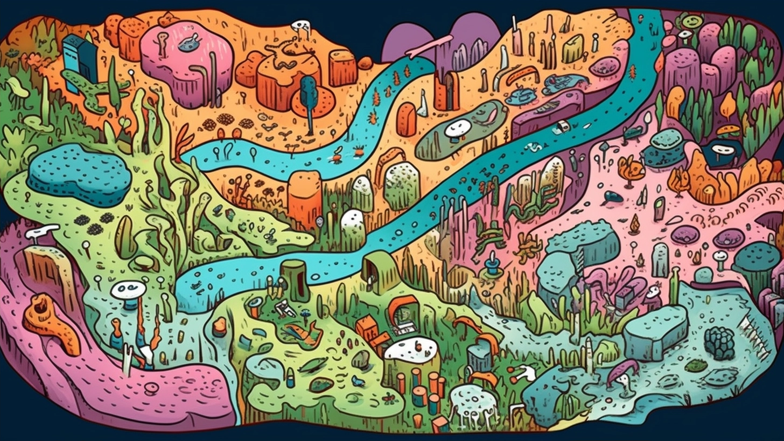
At the forefront of this field is the study of microbiomes - the diverse communities of microorganisms that inhabit different ecological niches. Microbiomes can be found in every corner of the planet, from the depths of the ocean to the upper atmosphere, and they play an essential role in maintaining ecosystem function and stability.
Understanding the structure and function of microbiomes is a complex and challenging task, but it is one that promises to unlock a wealth of knowledge and insights into important topics such as human health, food production, and environmental sustainability. In this article, we'll take a journey through the fascinating world of microbial research, examining what microbiomes are, how they function, and the valuable insights this research provides.
What are Microbiomes?
A microbiome is essentially a community of microorganisms that inhabit a specific ecological niche or environment. In the human body, for example, microbiomes are found in a variety of places, including the gut, mouth, skin, and vaginal tract. These microbial communities are incredibly diverse, consisting of bacteria, archaea, fungi, viruses, and other microorganisms.
Each microbiome is unique and complex, with its own set of ecological dynamics and interactions. The composition of a microbiome can be influenced by a variety of factors, such as diet, genetics, age, and environmental exposures, and disruptions to this ecosystem can have significant effects on health and disease.
How do Microbiomes Function?
The exact mechanisms by which microbiomes function are still not fully understood, but research has revealed a number of key insights. For example, studies have shown that microbiomes can influence a variety of physiological processes, including metabolism, nutrient cycling, and immune system function.
One of the most well-known examples of this is the role of gut microbiomes in digestion and metabolism. The bacteria and other microorganisms that inhabit the gut can break down complex carbohydrates and fibers that the human body cannot digest on its own, producing short-chain fatty acids that serve as an important energy source.
Microbiomes can also play a role in regulating the immune system, both locally and systemically. For example, research has shown that disturbances in gut microbiome composition can lead to chronic inflammation, which has been linked to a variety of inflammatory bowel diseases and other conditions.
Beyond these important physiological functions, microbiomes can also play a critical role in ecosystem processes such as nutrient cycling and the degradation of organic matter. In soil ecosystems, for example, microbial communities are responsible for breaking down organic matter and releasing nutrients that can be absorbed by plants.
The Value of Microbial Research
Given the important role that microbiomes play in both human and ecological health, it is no surprise that microbial research has become a burgeoning field in recent years. Advances in scientific technologies, such as next-generation sequencing and metagenomics, have made it possible to study microbiomes in unprecedented detail, providing insights into their structure, function, and ecology.
One of the most exciting areas of microbial research is the study of the human microbiome and its relationship to health and disease. Researchers have found that disturbances in the gut microbiome, for example, have been linked to a variety of conditions such as obesity, diabetes, and inflammatory bowel disease.
Understanding these relationships could lead to the development of new therapies and treatments for a variety of diseases and conditions. For example, researchers are currently investigating the use of fecal microbial transplantation to treat conditions such as C. difficile infections and inflammatory bowel disease.
In addition to these medical applications, microbial research also has broader implications for environmental sustainability and agricultural production. Understanding the roles of microbiomes in soil nutrient cycling, for example, could help improve agricultural practices and reduce the need for harmful synthetic fertilizers.
Looking to the Future
Despite the significant progress that has been made in microbial research over the past several decades, there is still much to be learned about this fascinating field. New technological advances continue to push the boundaries of what we can discover about microbiomes and their functions, offering new opportunities for research and discovery.
With these exciting developments on the horizon, it is clear that the study of microbiomes is poised to play an increasingly important role in shaping our understanding of the world around us, and in developing innovative solutions to some of the most pressing challenges we face today. As we continue to delve deeper into the hidden secrets of the tiny creatures that play such a profound role in shaping our world, the potential for new insights and discoveries seems virtually limitless.
Comments
Post a Comment